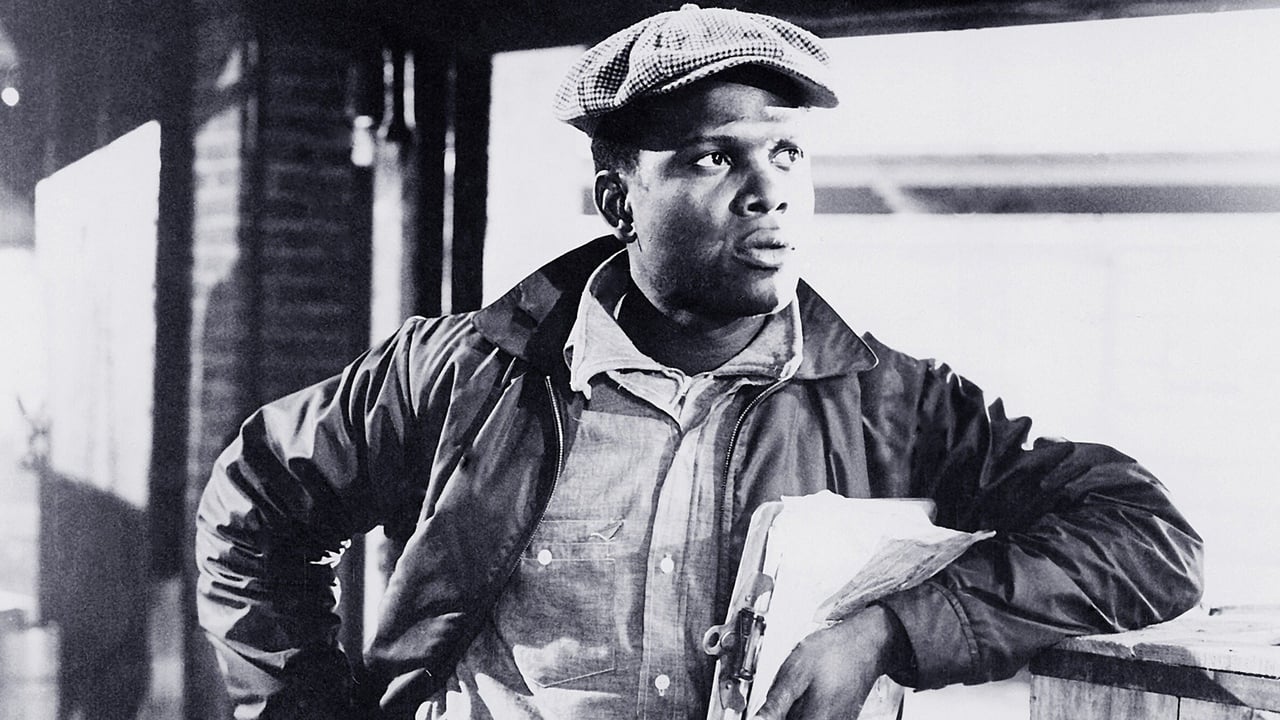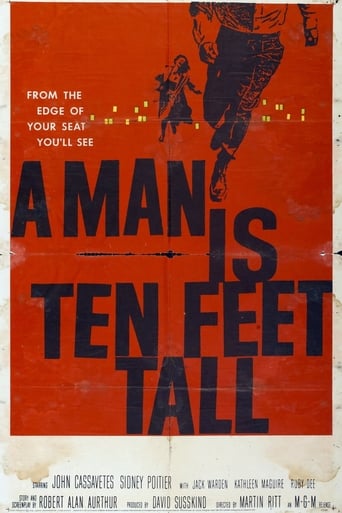

This first movie by Martin Ritt can be seen as a work against racism.In several respects ,it is,but it's much more: it's the story of a loser (Cassavetes) ,who is through with his family (his father could not forgive him the accidental death of his brother) ,with the establishment (he is a deserter) and with the men in general.He places his trust in Tommy Tyler (Toto;Sidney Poitier),a black man,whose life is not rosy though .The price to pay to regain self-confidence will be very high.Filmed in black and white ,"edge of the city" takes place in a working-class milieu,which is rare in the world of cinema.Martin Ritt was a director whose social concerns continued on many of the works of his career: unions in "Norma Rae" ,education in "Conrack" ,illiteracy in "Stanley and Iris" ,racism in "Paris Blues " -but in this latter movie, Ritt was very naive when he thought that France was a country where racism did not exist-,all these subjects are hinted at in "edge of the city".
... View MoreAxel Nordman (Cassavetes) shows up on the New York dockyards looking for a job, but with a hidden past. He gets one on condition that he pay a kick back to surly crew boss Jack Warden. While there, he strikes up a friendship with black man Sydney Poitier that unfortunately leads to a gut-wrenching moral dilemma for a man who, we learn, typically runs from his problems.The movie looks like Oscar winner On the Waterfront, feels like On the Waterfront, and most importantly, plays much like that 1954 Kazan production. However, its racial theme is ground-breaking for the time. The black Poitier and the white Cassavetes are treated as equals in every respect. It might even be called the first of the black-white "buddy" pictures that would later dominate so many action films.It helps that the two leads play so well off each other. Nonetheless, the movie's central flaw is failing to indicate why crew-boss Poitier pushes a friendship with the dour Cassavetes in the first place. He really goes out of his way to befriend the newcomer. But why he would cross racial barriers to do so is never really suggested. One possible explanation is that Poitier wants to use Cassavetes as a pawn in his rivalry with other crew-boss Warden, but then comes to genuinely like the guy. There's a hint of that in some of Cassavetes's suspicious reactions, but beyond that, the relationship appears unmotivated.If there's a single stage shot in the entire movie, I couldn't spot it. Everything is done on seedy New York location, without the usual movie extras. In that sense, it's an anti-Hollywood production, carefully deglamorized even down to the night club scene which itself looks like a real after-hours crowd. I suppose sociologists would dub this rather raw slice-of-life "a glimpse of the working poor".Yet, for all its virtues, which are many, the film remains too close to the Brando-Kazan movie for comfort. Here, a fine unknown actress Kathleen Maguire gets the role of the redemptive girl friend, Warden the role of the corrupt labor boss, while Cassavetes, like Brando, must suffer a bloody beating before regaining his moral standing and doing the right thing. Still and all, despite the derivative nature, the gritty urban drama retains enough of the original force to merit a look-see.
... View MoreEDGE OF THE CITY is a waterfront drama with overtones of racial intolerance, a tough, gritty drama with strong performances by JOHN CASSAVETES, SIDNEY POITIER and JACK WARDEN, under Martin Ritt's knowing direction. Warden makes the most of an unsympathetic role as a longshoreman boss who harasses Poitier and Cassavetes, both just trying to make a living out of their waterfront jobs. Warden represents "the lowest form of life" in this screenplay.It's a sort of buddy flick, with the friendship between Cassavetes and Poitier accented throughout the first forty-five minutes before you get an inkling of where the plot is going. Behind it all, we know that Jack Warden and the workplace environment is going to steam up into some sort of confrontation--and all we know about Cassavetes is that he's hiding something in his past.We learn eventually that he's an Army deserter who has to keep his identity secret. At work, it's Warden who knows about his past--and therein lies the conflict that has to be resolved. An argument between Cassavetes and Warden leads to a lethal fight between Warden and Poitier, after which an investigation takes place with regard to Poitier's murder.The code of silence among the onlookers hinders the investigation but the final scene packs a powerful punch as Cassavetes gets even with Warden.Remarkably taut during the last fifteen minutes, there are strong performances from the men and RUBY DEE as Poitier's grief-stricken wife. Well worth watching.
... View MoreA skillfully directed film by Martin Ritt where a drifter and anti-hero, John Cassevetes lands in N.Y. to escape a tragic incident in his life, where he killed his brother in an automobile accident as well as going AWOL from the army.Cassavetes, always an intense actor, shows grit in his portrayal of a film. Am surprised that Montgomery Clift didn't get this part.Ruth White is his mother and does remarkably well in two scenes on the telephone.Once in New York, he befriends Sidney Poitier as the two work on the docks. Immediately, Jack Warden, a bully and villain in this film,takes a dislike to him and tragedy ensues when Poitier tries to defend his friend.Ruby Dee, plays Poitier's wife in this film, and is brilliant in a scene where she urges Cassavetes to reveal the killer of her husband.This is definitely an interesting film of moral values and the loner in society. With the backdrop of tenements, the right mood is depicted in the film.
... View More